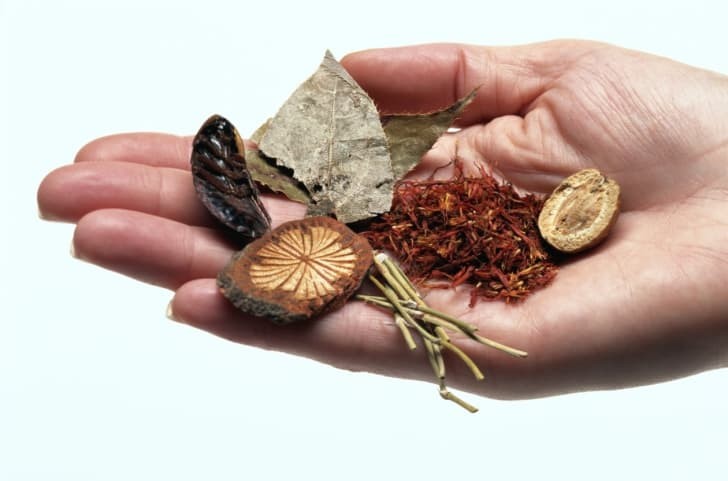
Traditional Chinese Medicine (TCM) is an ancient healing tradition that is increasingly utilised for its ability to treat a wide range of conditions, including Attention Deficit Disorder (ADD), otherwise known as Attention Deficit Hyperactivity Disorder (ADHD). Many people have become disillusioned with conventional medicine and its reliance on prescription drugs and their associated side effects, and have turned to complementary therapies.
What is ADD?
ADD is a behavioural disorder that typically affects children, though it can persist into adulthood. It is characterised by symptoms that include irritability, restlessness and an inability to concentrate and sleep – and these can be difficult to distinguish from normal children's behaviour. New research has identified people who suffer only one aspect of the condition, i.e. only attention deficit or only hyperactivity, though some sufferers are affected by both aspects of the disorder. The services of a professional health worker — typically a paediatrician or child psychologist — are needed to make a definitive diagnosis. ADD and similar behavioural disorders have traditionally been treated with prescription medication, including the controversial drug Ritalin.
What is TCM?
Traditional Chinese Medicine, or TCM for short, is still an integral part of oriental medicine, which includes a range of treatments including acupuncture, herbal medicine, meditation/breathing therapy and massage. It is based on the concept of balancing yin and yang forces, the theory of opposites which considers the vitality of the human body to be a consequence of the balance between yin and yang.
TCM also identifies energy meridians, or chi, running throughout the body, which connect and sustain the major organs. Any illness or disease is seen as an impediment to the free flow of energy and blood, and an imbalance in yin and yang. These are typically relieved or treated by one or more of the TCM therapies.
How Can TCM Help ADD?
TCM approaches health and healing from a holistic perspective. It identifies the kidneys as the organ responsible for all development in the body, and views ADD as an indication of a deficiency in this area. Patients will be assessed on an individual basis and a treatment plan devised, which may include dietary alterations, acupuncture, acupressure and herbal medicine.
In TCM, the main causes for ADD are a congenital liver or kidney deficiency or trauma during birth or childhood. The main TCM mechanism for ADD is the disharmony between yin and yang in the dysfunctional heart, liver, spleen or kidney. This is the cause of lack of concentration. If there is a heart and kidney deficiency, the person will have slow mental reactions, poor memory, lack of concentration, enuresis, many dreams, and a dark complexion. The remedy for this is Kong Sheng Zhen Zhong Dan.
If there is a kidney deficiency with a hyperactive liver yang, the person is easily upset, loud, easily excited, and finds it difficult to sit down for long periods of time. The remedy for this is Qi Ju Di Huang Wan and Long Gu, Mu Li. In a heart and spleen qi deficiency, the person is in their own world, has a lack of concentration, is a dream, has quiet, subtle movement, is a light sleeper, sweats spontaneously, sweats at night, and is a picky eater. The remedy for this is Gui Pi Tang and Gan Mai Da Zao Tang.
What is Acupuncture & How Can it Help With ADD?
Acupuncture is one of the key components of TCM that works with the body's acupoints to clear blockages and restore energy and blood flow throughout the body. It supports the body's natural healing mechanism and improves one's quality of life. During a treatment session, acupuncture needles are inserted at specific points on the body in order to produce a specific action, whether it's to clear heat from the body, tonify the lung, balance the heart and mind, etc.
Often, an acupuncture treatment is used in conjunction with conventional treatments. As well as treating low-back pain and chronic pain, it is also used to resolve skin conditions, mental disorders and behavioural issues.
A systematic review on the effectiveness of acupuncture in the treatment of ADD (M. Greenwood, 2020) highlights the simplicity of the procedure in connecting the heart and mind to address the condition. It involved clearing excess heat and wind, relieving Liver Qi stagnation, and tonifying the kidneys and spleen. There were different areas of concentration on the head, including GV20, GB8 and GB20, to eliminate heat and wind. Points GV24 and Ex-HN 1 were also stimulated to relieve stress and calm the spirit. Acupuncture sessions for children also involved points on the feet to calm anxiety.
The combination of auricular acupuncture with herbal medicine has also shown to produce amazing results in patients with ADD. Using this type of acupuncture in patients with mental, emotional or behavioural disorders can help address stress, anxiety and insomnia as it stimulates the shen men point, which is the entryway to the mind, emotion and spirit.
There is no need to treat the beneficial effects of acupuncture on ADD as a miracle. Researchers have shown that the healing science of acupuncture involves the simple release of stagnated energy and dilation of constricted blood vessels to promote the body's blood circulation, nutrient distribution and detoxification. Then and only then can it function at its best and overcome all types of ailments, including ADD.
Get more information about other beneficial natural ADD treatments.
Originally published on Jul 02, 2010








